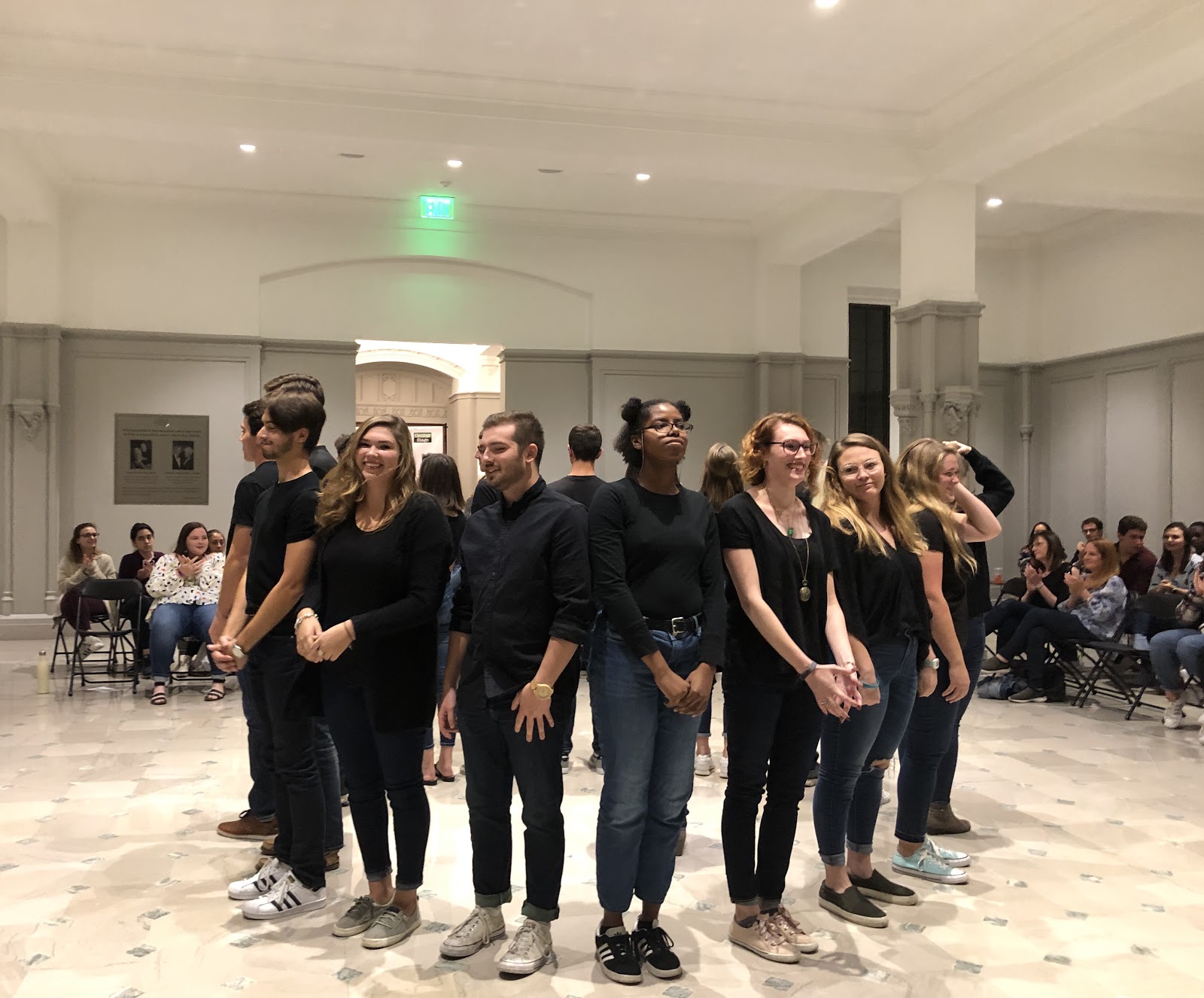What I Want to Say But Never Will

Image courtesy of Noelia Veras
By Noelia Veras
CenterStage assembled What I Want to Say But Never Will, a production made up of monologues recited by students at Catholic University but also written by students. In preparation for the performance, students around campus were asked what they wish to say but never will, to whom they would say it to, and why they feel they can’t say this.
CenterStage is an organization on campus that welcomes all students, regardless of their major, to participate in theatre and production at Catholic University.
The script for this production was initially created by a high school and then adapted by CenterStage to better reflect the student opinion at Catholic University, although some monologues from the original performance were used. The performance provided limited information regarding the cabaret to the audience as there were no programs, adding to the mystery of the show.
Elizabeth Ludlam played the role of the narrator, guiding the audience throughout the show. The narrator introduced themselves as a man, saying that although he looked and sounded like a woman, he was really a man speaking through a vessel. This explanation introduced the concept of the play: someone reciting the desires and grievances of another person while fully embodying them to a crowd. Although this seems intuitive, as that’s what actors do, the narrator persisted in expanding this idea so as to emphasize that the students presenting were not the original authors of their monologues.
The monologues were extremely diverse in topics and themes. Several were about lost love, dissolving friendship, and sexuality. A particularly moving performance was delivered by sophomore media and communications major, Ethan Stickler. His performance revolved around a boy who was telling his parents that he is gay, even though he claimed that his parents would never understand. The performance showed two scenarios. In the first scenario, his parents were supportive and loving, but the boy turned to the narrator in this case and said that this was unrealistic because his parents could never react so positively. In the next instance, his parents were completely closed off to the idea of him being gay making the boy exclaim that he could never come out to his parents in real life because this was how they would react.
“Being a part of this show was exciting because this was my first time ever doing anything like this, since I’ve never acted before,” said Stickler. “It was fun to meet people I would not have otherwise met and to be able to tell stories that people so desperately wanted to say was honestly a privilege.”
Another striking performance came from senior psychology and brain sciences major, Mary Grace Zwilling. Zwilling portrayed a girl who was constantly looked at as promiscuous and objectified, rather than respected. She communicated her distress and lack of hope in ever truly being happy with a man because of her image and people’s preconceived notions.
“My favorite part about being in this show is being on the other side of a performance,” said Zwilling. “So many people came together from such different backgrounds to tell such beautiful stories that really needed to be told.”
After the show ended the president of CenterStage, Isabelle Gholl, said a few words of thanks to the audience, the cast, and the director of the show, Cecilia Bracey. People from the audience then stood up to congratulate their friends and many were even in tears.







